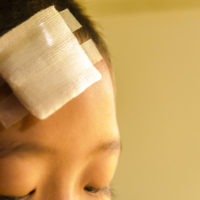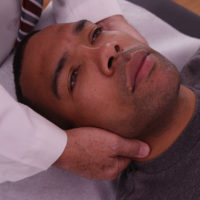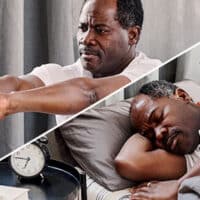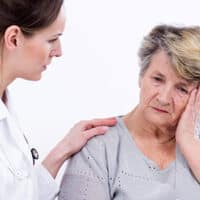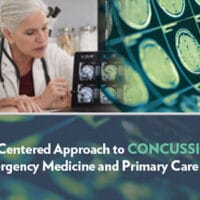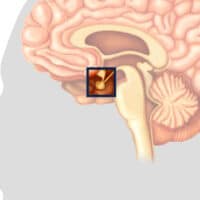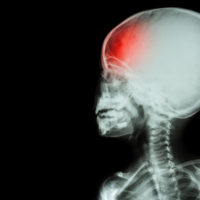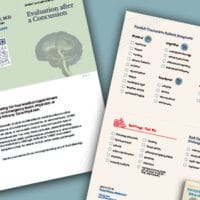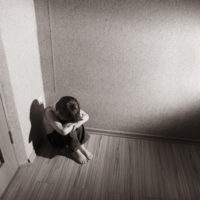Archive
Text
Top Causes of Concussion in Children and Adolescents
When we think of “youth” and “concussion,” the first thing that likely comes to mind is a teenager engaging in a high-risk activity such as football, soccer, or snowboarding. But not all youth brain injury results from these risky activities. Of the millions of concussions reported by emergency rooms every year, figures put concussions related to sports and recreation at just 30% – so 70% of concussions result from other causes.
Is Concussion a Diagnosis?
Clinicians like me say that concussion requires a clinical diagnosis based on the history of what happened to produce the symptoms. However, because these same symptoms appear in other conditions, and we don’t have reliable biomarkers, diagnosing a concussion can sometimes be a challenge. The lingering effects of a mild brain injury can also continue as a chronic condition, often referred to as post-concussion syndrome or persistent post-concussion symptoms, that still require treatment.
3 Things to Do to Allow Your Brain to Recover More Quickly After Brain Injury
After a concussion, people need good sleep patterns, and they also need to resume activity and exercise to aid recovery. Activities with concussion risk should be avoided, however.
Traumatic Brain Injury and the Elderly
Traumatic brain injury (TBI) is a leading cause of death and disability among seniors. The cause is often a fall or a motor vehicle accident, but head trauma due to elder abuse or neglect must always be considered, too. Older adults usually have other health conditions and sometimes dementia, so a diagnosis of a TBI can be challenging. The brains of elderly people are also more vulnerable to injury, and many older adults are on anticoagulant medications that put them at risk of brain bleeds. If elder abuse or neglect is suspected, mandatory reporting laws must be followed by certain professionals and even ordinary citizens in some states of the United States.
Mood Disorders Such as Depression Can Complicate a Brain Injury
A traumatic brain injury can be associated with depression or another mood disorder, possibly because of the disruption of brain chemicals.
A Patient-Centered Approach to Concussion Care: CME & Webinar
Elizabeth Sandel, MD, a physiatrist and brain injury medicine physician, and Conor Gormally, co-founder of Concussion Alliance — a young man who has experienced several concussions — present a patient-centered care approach for emergency medicine and primary care physicians.
How Does Brain Trauma Affect Brain Hormones?
Evaluating and treating people with hormonal deficiencies after traumatic brain injury (TBI) can be very challenging. Learn about the screening and treatment of pituitary deficiencies that may occur in both the acute and chronic stages after a concussion or other TBI.
How Long Will It Take for My Child to Recover from a Concussion?
Children can experience a range of symptoms after concussion. They require individualized treatments and strategies for returning to activities and to school. A physician with training and experience in treating concussions must provide early interventions and follow-up, regardless of how long recovery takes.
Will My Child Experience Long-Term Consequences from a Concussion or other Brain Injury?
Although most children recover fully after a single concussion, others have long-term effects. Of course, prevention is the best strategy, but if a concussion occurs, parents must understand a brain injury has occurred.
Self-Reported Concussion Symptoms are Key to Evaluation & Diagnosis
To properly diagnose a concussion and devise a treatment plan requires a thorough physician evaluation, a symptom checklist or an interview, or both, followed by a comprehensive cognitive and physical examination. Download a pocket guide that helps patients prepare for being evaluated.
Abuse: A Leading Cause of Brain Injury in Children
Child abuse is a top cause of brain injury-related emergency room visits, hospitalizations, and deaths among children of all ages. Diagnosis can be challenging in cases of pediatric abusive head trauma. Prevention strategies at the individual and community level can be effective and there are many available resources.
Opioids Cause Problems After a Brain Injury
Stories of opioid-related disability and death are in the news frequently because of a surge in the use of these substances over the past few decades. For people with a history of brain injury, including concussions, the risks of using opioids are higher than for those without this medical history. Learn about the benefits and dangers of these substances, some of which are not only legal but widely prescribed for acute and chronic pain.
Keep up to date
Get updates on the latest in concussion, brain health, and science-related tools from Dr. Elizabeth Sandel, M.D.
By clicking SIGN UP, you agree to receive emails from Dr. Sandel and agree to our terms of use and privacy policy.
